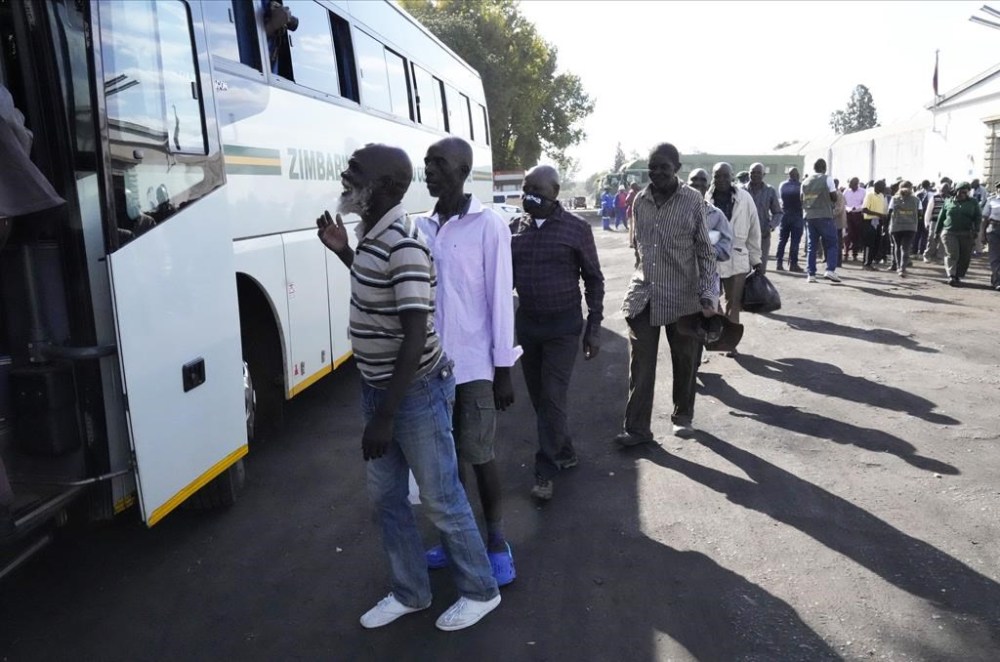Zimbabwe releases prisoners in amnesty, reducing overcrowding
Advertisement
Read this article for free:
or
Already have an account? Log in here »
To continue reading, please subscribe:
Monthly Digital Subscription
$0 for the first 4 weeks*
- Enjoy unlimited reading on winnipegfreepress.com
- Read the E-Edition, our digital replica newspaper
- Access News Break, our award-winning app
- Play interactive puzzles
*No charge for 4 weeks then price increases to the regular rate of $19.00 plus GST every four weeks. Offer available to new and qualified returning subscribers only. Cancel any time.
Monthly Digital Subscription
$4.75/week*
- Enjoy unlimited reading on winnipegfreepress.com
- Read the E-Edition, our digital replica newspaper
- Access News Break, our award-winning app
- Play interactive puzzles
*Billed as $19 plus GST every four weeks. Cancel any time.
To continue reading, please subscribe:
Add Free Press access to your Brandon Sun subscription for only an additional
$1 for the first 4 weeks*
*Your next subscription payment will increase by $1.00 and you will be charged $16.99 plus GST for four weeks. After four weeks, your payment will increase to $23.99 plus GST every four weeks.
Read unlimited articles for free today:
or
Already have an account? Log in here »
Hey there, time traveller!
This article was published 19/05/2023 (906 days ago), so information in it may no longer be current.
HARARE, Zimbabwe (AP) — Zimbabwe has begun releasing more than 4,000 prisoners under a presidential amnesty that authorities say will help ease congestion in some overcrowded jails.
About 800 prisoners were released Friday from the Central Prison and Chikurubi Maximum Prison in the capital, Harare. Jails in other parts of the country began releasing prisoners who qualified for the amnesty on Thursday, said Zimbabwe Prisons and Correctional Services spokeswoman Meya Khanyezi.
She said the amnesty would “go a long way in reducing the prison population.” Zimbabwe’s prisons have a capacity of 17,000 but hold more than 20,000 inmates.

Former prisoners have in the past complained about overcrowding and other harsh conditions such as a lack of food and proper health care. Amnesty International has previously described the conditions as “deplorable.” The southern African nation of 15 million people regularly uses the presidential amnesty to decongest prisons.
A beneficiary of the latest amnesty, John Mafararikwa, who was serving a 17-month sentence for theft, expressed relief.
“It’s overcrowded and the food is bad. Most of the time we would eat food prepared without cooking oil,” said the 71-year-old, boarding a prison bus taking him and other amnesty beneficiaries away from Harare Central Prison.
Song, dance and prayers marked the event. Some people of advanced age walked with the aid of crutches. A small group wore graduation robes after receiving diplomas in bible studies.
At Chikurubi Maximum Prison, freed women prisoners hugged prison officers, while men rushed for the back of an open truck waiting to transport them from the jail. Others thanked President Emmerson Mnangagwa for showing mercy.
All females imprisoned for non-violent crimes and who served a third of their sentences are to be released. Terminally ill people will be released regardless of the crime committed, while blind prisoners and those “who are physically challenged that they cannot be catered for in a prison” had their remaining sentences fully remitted.
Prisoners aged 60 years old and above and juveniles are among beneficiaries of the amnesty, while those who have been on the death row for the past 10 years had their sentences commuted to life imprisonment.
Zimbabwe still has the death penalty but has not hanged anyone since 2005. President Mnangagwa has previously said he is against the death penalty.
Those serving life in prison but have been in jail for the past 20 years will also be freed.
Prisoners who committed violent crimes such as murder, carjacking, human trafficking and sexual offenses but have served three quarters of their sentences are also being released. Those locked up for crimes such as treason, robbery, public violence and sabotaging electricity infrastructure were ineligible for release.

